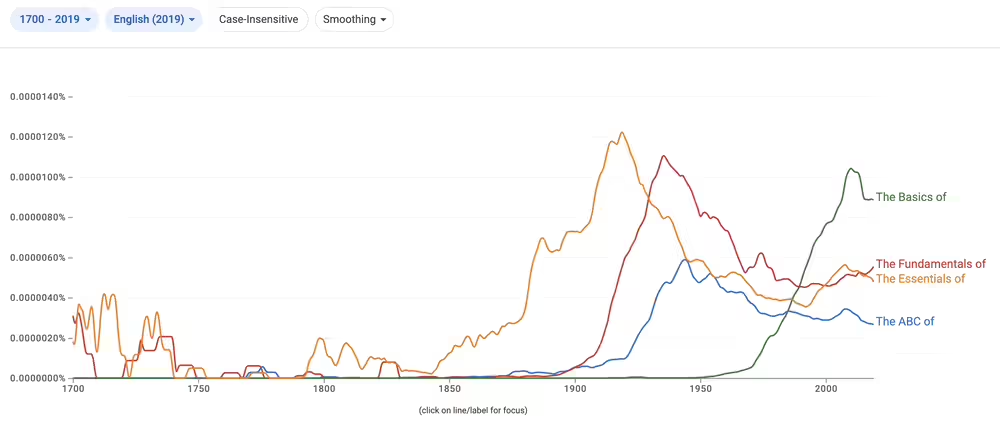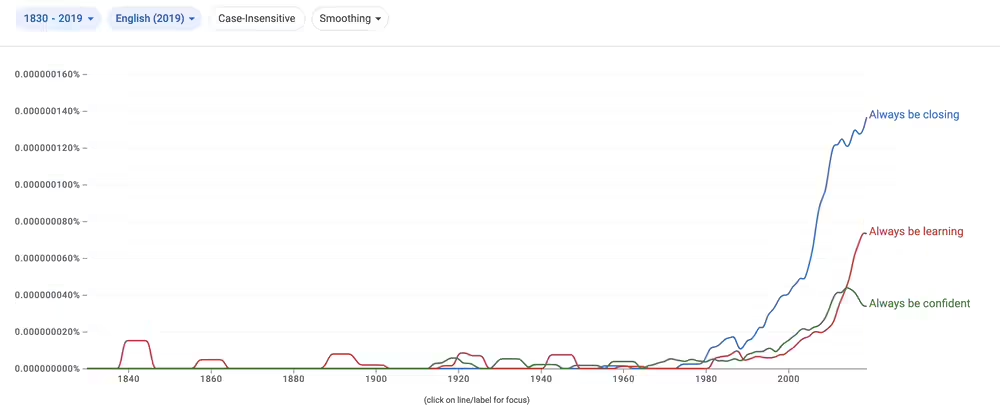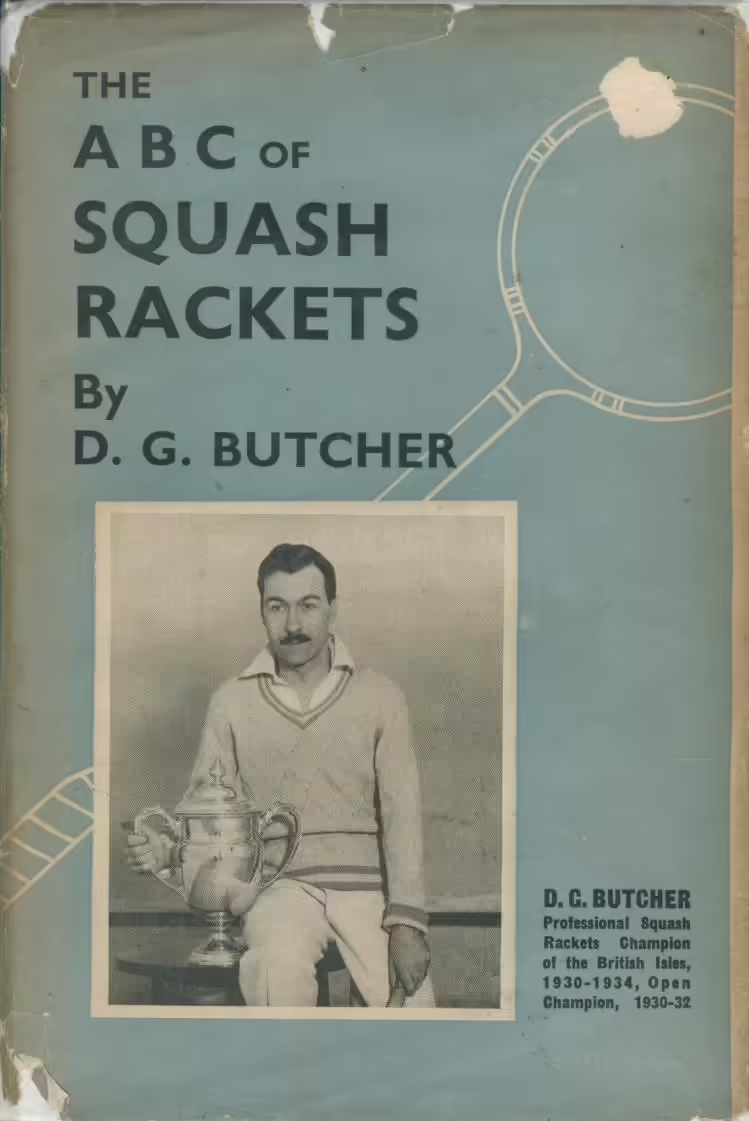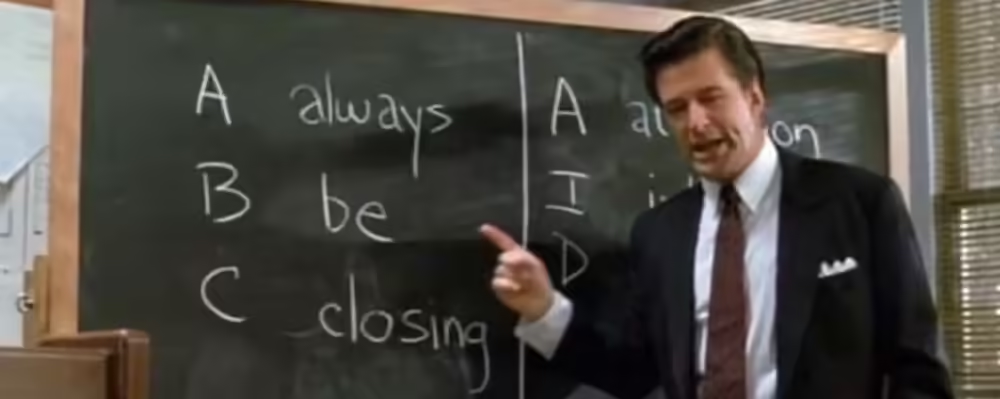03 October 2023 / 5-Min Read / Translate
In a reddit comment, SophieBio wrote the following sentence as part of a reply to a question about coaching: "The ABC of squash is not different for anybody. Accuracy. Balance. Control. Lose one, lose the three. Playing squash is about keeping these 3 while making your opponent losing one (hence all)."
It's really well put, but it got me thinking about the ABC concept and this article is the result of that thinking.
I find different ways of presenting the same information fascinating because there is no perfect way, style, format or method that will suit everybody. People are different and what feels right for one, may not feel right for another. So, using the ABC method seems like a cool way to say the same things I, and many other coaches, have been saying for years.
Before I talk about the actual A, B and C definitions, I'd like to take a slight detour and talk about the phrase "The ABC of". It's an English idiom and means the sense of "rudiments or fundamentals (of a subject)".
Here is an image showing a few variations and their popularity over the years..

It was first used in the late 14 century, which is a bit of a shock to me. Originally, the letters were not actually defined and the text simply covered the fundamentals of a subject. It's said to come from the idea that children learn the first 3 letters of the alphabet. So originally, it meant the first things you need to learn, and that is often the fundamentals.
I couldn't find when the letters i.e. A, B and C began to be defined explicitly using words that start with those letters. It seems like a natural progression though and can certainly help an educator encapsulate the most important information down into three s, and therefore help a learner focus their mind on the key points.
The acronym "ABC" was also famously used by David Mamet in his 1984 play "Glengarry Glen Ross" for the idea of "Always Be Closing", but the phrase "Always Be..." followed by other words predates the play.
Here is an image showing a few examples.

Interestingly, in 1934 D.G. BUTCHER wrote the book "The ABC of Squash Rackets", I have ordered a copy but at the time of publishing this article it I haven't been able to collect it. It will be interesting to see if it defines the letters. I'll update this article when I have it.

Oh, one last thing to tell you about squash books. While searching for that book, I found it available in the library service of Victoria, Australia! It seems possible to actually order it and read it, which I think is very cool. In fact, there are other squash books that can be ordered through them too. Here is the link if you are curious: https://find.slv.vic.gov.au.
So back to those letters then. It seems I have two choices on how to use them. Firstly, using each letter as a separate word and trying to encapsulate the key elements of squash as in the comment from SophieBio on Reddit or try to find a C word that works well with "Always Be...".
I think I'll start with this format.
My first option is "Creating", so "Always Be Creating". Here creating means creating opportunities to put your opponent under pressure or hit winners. It's the idea that each shot should be hit with that purpose in mind. Don't hit shots because it's your turn, hit shots to create weak returns from your opponent, which you then capitalise on.
Option two is "Controlling", so "Always Be Controlling". I suppose that controlling and creating can mean the same thing: the idea that your overriding task as a racket-sports player is to control the court (in squash, the T specifically), your opponent and of course, the ball.
The next option is "Calm", so "Always Be Calm". Becoming emotional or over-stimulated is generally not good for your squash. Playing the shots that frustrate that opponent on that day, rather than your favourite ones is very important. I suppose what "calm" means here is using your head, not your heart.
How about "Confident"? "Always Be Confident" sounds like a great sound bite, but does it really help most amateur players? I don't think so. Unless you have been playing and training really well, what have you got to be confident about? That's not to say that mindset isn't incredibly important in sports, it's just that simply repeating this phrase won't suddenly make you play better.
This next option fits into the traffic light system of shot selection. "Always Be Certain". If you are not totally convinced that this shot is the right time to attack, then play a probing shot instead. Lack of commitment is possibly worse that choosing the right time to attack.
Honourable Mentions: I did consider the following options but for brevity decided against including them: civil, calculated, compact. Asal haters might have added "Always Be Cheating". But I didn't say that.

As a reply to their original comment, I asked SophieBio to define those words because I was a little concerned that "Accuracy" and "Control" could be taken to mean the same thing. They wrote the following:
"Control: is mostly about controlling the space (T area), and the rythme (Phillip's note: I believe they meant rhythm) of play (the time, space-time control, to make Einstein jealous). Leading to controlling (limiting) the choices of the opponent. And, your own body control (see accuracy).
Balance: is about the player center of gravity allowing to get back in a controlling position. Not hitting the ball off-balance. And by the way not losing control.
Accuracy: I think that's clear, putting the ball where it should. This imply to have controlled, balanced body position and "standardised", repeatable, racket movements.
I often add-up while explaining it that there are no "power" in the ABC. Not that power is not important but that the (right) power just is a support to the ABC.
They adapted the above from a longer post they had made previously about how to become an attacking player, which is also an interesting read in itself.
Let's be honest, there's no reason for me to reinvent the wheel.
Accuracy, Balance and Control are perfect words to describe what squash players should be focusing on during playing and training.
Those three words work well because they address:
Technique; you can't be consistently accurate without good technique,
Fitness; you can't have balance without moving well and being strong, and finally
Tactics; you need to understand where and when to move your opponent to.
However, I wouldn't be me, if I didn't want to change at least one thing, and I might, just might, want to argue that Control could be Creation. I feel it's really important that players have a guiding principle when playing squash. Controlling a game without a plan might lead to missed opportunities. "Creation" makes me feel that you are "controlling with a purpose" i.e. you have a clear goal in mind and are working towards it.
But all this talk of "control" and "creating" comes down to what I said at the beginning about different players needing different approaches. For most players "Control" is perfect, for some that lack guidance perhaps "Creation" is maybe more helpful.
I was curious how other racket sports used the phrase "The ABC of", so I took a little time to do some searches.
TENNIS: The only book I could find was written specifically for children to help adults teach them the alphabet and tennis. There were plenty of websites and articles teaching you the "ABC of Tennis" though.
BADMINTON: The ABC of Badminton by C. Pette Triscott was published in 1926. The author wrote books on tennis and golf, so I suspect he wasn't actually a badminton coach and the series was just a way to promote each sport. Again, the general phrase is used by websites and articles.
TABLE TENNIS: I couldn't find any books with the title, but plenty of articles, and websites use the phrase "the ABC of Table Tennis".
PADEL: No books with that title, which is understandable as Padel's popularity is quite recent. I found a few websites using the phrase to introduce the game to people though.
POP TENNIS: Interestingly, I found nothing for "The ABC of Pop Tennis". This took me down the GoogleWhack rabbit hole.
So it seems that in terms of books, "The ABC of..." doesn't feature much, but as a phrase used to introduce the basics of a sport it seems quite popular.
Condensing squash down to a few words allows current players to simplify their approach, remove extraneous distractions and gives them a clear objective. But it also has the benefit of giving new players an easy to understand principle to aim for.
I may to write a "part 2" with the specific intention of addressing the fundamentals a beginner should consider when starting squash. So look out for that eventually.